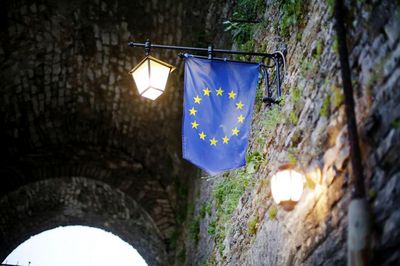posted on
Cultural Relations - Key Approaches in Fragile Contexts

The report on Cultural Relations – Key Approaches in Fragile Contexts commissioned by the European Union National Institutes for Culture (EUNIC), the British Council and the Institut für Auslandsbeziehungen (ifa) has been published in the framework of the Future Unlocked Symposium and Senior Official Meeting organised by the Slovenian Presidency of the EU.
The report, authored by Jordi Baltà, carries the subtitle “how cultural relations can enhance peace and stability”, analyses the links between culture, conflict and peace, with a particular focus on the role that international cultural relations play for the so-called ‘fragile’ countries and regions, in a context of increasing attention to the existing interrelations between these three elements and focusing on international cultural activities involving national institutes for culture and other agencies.
To assess evidence as to how cultural relations contribute to enhancing the role and visibility of “fragile” countries and regions, the author has used a multidimensional framework structured around five dimensions: economic, environmental, political, security and societal fragility, identifying several connections between cultural relations, related projects and activities, and these five dimensions. For instance, economic fragility can be addressed through entrepreneurship in cultural and creative areas, actions related to cultural heritage (protection, sustainable tourism…), etc. whereas environmental fragility relates to inclusion of cultural actors in environmental protection actions, environmental sustainability of cultural spaces and sites and creative forms of environmental awareness-raising.
The report includes eleven examples on how cultural relations can contribute to peace and stability in fragile contexts, taking into account their positive impacts, also in conflict and post-conflict settings, and as regards community engagement, inclusive development, social cohesion by also giving voice and agency to marginalized communities.
Against this background, the report puts forward a series of main recommendations to EU Institutions, EU Member States and EUNIC members that include the need to acknowledge the potential of integrating cultural aspects in approaches to peace, stability and development; to strengthen the position of cultural aspects in the implementation of the 2030 Agenda and the SDGs; to design joint strategies on peace, stability and development at national and regional level integrating cultural aspects alongside other relevant dimensions. Furthermore, the European Commission is called to integrate culture substantially, with clear goals and allocated resources, in the implementation of the new Neighbourhood, Development and International Cooperation Instrument – A Global Europe (NDICI), among other actions.
Similar content
posted on
posted on
posted on
posted on
posted on



